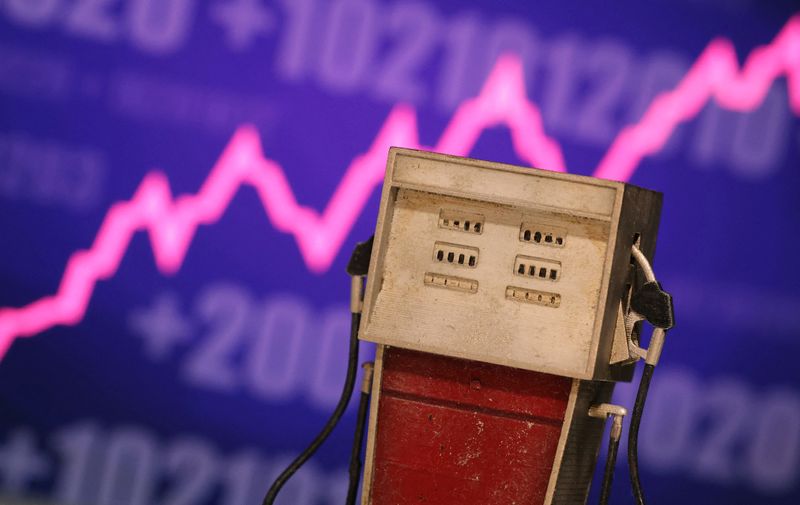By Natalie Grover, Noah Browning and Ahmad Ghaddar
LONDON (Reuters) - A push to replenish depleted oil stocks notably in China, the United States and Europe could buoy demand and prices in coming months, analysts and traders said, as tensions in the Middle East threaten key shipping lanes.
Heavily depleted by supply disruptions wrought by sanctions on Russia in the middle of 2022, as well as protracted OPEC+ output cuts, global oil inventories have barely recovered with traders unable to justify the costs for storing oil.
Shipping disruption in the Red Sea due to escalating attacks by Iran-aligned Houthi rebels has increased concerns about supply, spurring buyers to rebuild inventories.
Morgan Stanley (NYSE:MS) raised its quarterly outlook for Brent crude prices on Tuesday to an average of $82.50 a barrel in the first and second quarters - compared with $80 and $77.50 previously - suggesting the bank now expects a tight oil market this year.
Consultants FGE said that available data so far this year has shown a large counter seasonal fall in crude and fuel stocks of almost 29 million barrels, compared with a typical average build of 20 million barrels during January in 2015-2019.
Energy watchdog the International Energy Agency said global inventories had slipped by 8.4 million barrels last November - the last month for which full data exists - to the lowest since July 2022, but that preliminary December data indicated a rise.
RESTOCKING INVENTORIES
Traders say they have so far seen strong buying from China, Europe and the United States.
"Chinese buying is high as it restocks in the first half", a trader for a European refiner told Reuters. "U.S. and European buying is also stronger this month as the situation for barrels from East of Suez could get much worse at any time."
The Chinese are buying heavily oil arriving this spring to replenish stocks while the United States is gradually topping up its Strategic Petroleum Reserve after selling a record amount from the government oil stores in 2022.
"In terms of days of demand cover (from oil storage), we expect the market to get to around 67 days by year end 2025 from current 64 days, which is still above pre-pandemic levels of around 60 days, assuming OPEC+ keeps cuts in place through 1H25." Citi energy strategist Francesco Martoccia told Reuters.
The Organization of the Petroleum Exporting Countries and allies like Russia (OPEC+) have sought to rein in supply with output cuts to buoy prices since 2022.
Those plans were underscored when the group's de facto leader Saudi Arabia halted plans to boost its maximum production capacity.
Riyadh's energy minister on Monday suggested the reason behind the decision was to aid the energy transition, adding the kingdom has plenty of spare capacity to cushion the oil market.
Oil prices largely shrugged off the decision late last month, with high demand in the form of stock rebuilding and a gush of non-OPEC+ oil supply appearing to more than offset Riyadh's change of tack.

"We continue to see a long-term imbalance, with OPEC supply around 2 million bpd too high relative to the implied call on OPEC crude by 2028", HSBC analysts said.
In a note last week as Brent crept near $80 a barrel, J.P. Morgan analysts predicted a price rise of $10 by May, assuming no geopolitical shocks and that Saudi Arabia and Russia will reintroduce a combined 400,000 barrels per day back into the market starting in April.